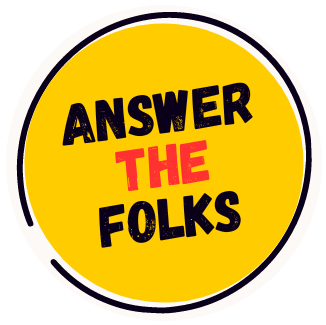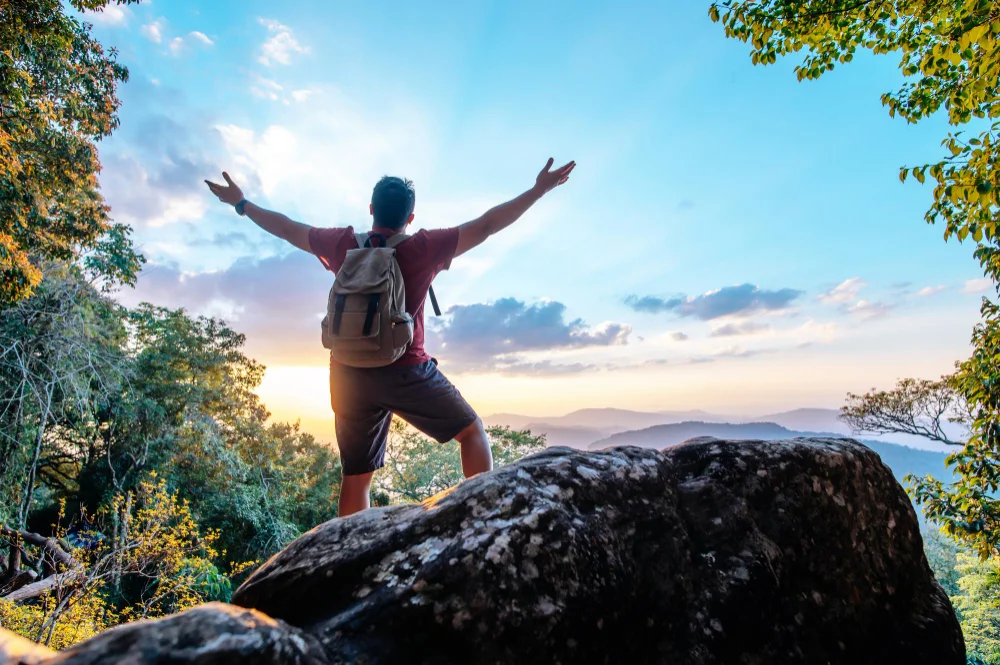Trip Tales Ready! Share Your Highlights & Spark Wanderlust
Whether it’s a business trip, family vacation, or personal getaway, returning from a trip always leads to one inevitable question – “How was your trip?”. While a simple question, getting your response just right is important for effective communication. In this post, I’ll share some of the best ways to reply based on my experience traveling extensively both for work and leisure over the years.
Quick Hits:
If you don’t want to read the full post. Then here are the quick responses that you can use in your texts:
- It was good overall, but the travel days were exhausting.
- Pretty uneventful, but it was nice to get away for a bit.
- Enjoyable – the sights were beautiful and the weather was perfect.
- A lot shorter than I would have liked! Wished I had more time there.
- Pretty relaxing. Mostly just hung out and took it easy the whole time.
- Fun! We packed in a lot of activities and saw a lot of cool places.
- Kind of a blur – it all went by in a flash. Can’t believe I’m already home!
- Tiring but worthwhile. I am blessed to go there.
- Eventful! Loads of adventures and funny stories from the road.
- Hot and humid, but the beach made up for it. Just what I needed.
Keep it Brief For Short Trips
For short trips like a long weekend getaway or a quick business trip, keep your initial response brief and positive. People asking this question are usually just making polite conversation, not expecting a detailed travelogue.
Something like “It was good, thanks!” or “Really nice, just what I needed to recharge” works well in these cases. Elaborating for too long on short trips can bore the other person unnecessarily. Learn to keep responses concise while still conveying the key point that you had an enjoyable time.
Highlight a Few Key Moments For Longer Trips
If you were away for over a week, people will naturally expect more details than just a one-liner. In these cases, aim to highlight a few of the most memorable or interesting aspects of your trip in your initial response.
For example, after a two-week Southeast Asia vacation last year, I replied “It was amazing! Some highlights were cliff jumping in Thailand, seeing orangutans in Borneo, and the incredible food everywhere.” Focusing on a few impactful moments gets the conversation started without information overload. People can then ask follow-up questions if they want more specifics on anything.
A Funny Anecdote From My Trip to France
During a trip to France with friends a few years ago, we had quite the amusing experience trying to order lunch at a small town restaurant where the staff didn’t speak much English. None of us were fluent French speakers either so it was a hilarious game of charades to get our meal orders across! When people asked about that trip, sharing that amusing anecdote about the language barriers we faced always generated laughter. Including one funny or lighthearted story can make recounting a trip more enjoyable for listeners.
Be Honest About Any Challenges
It’s not necessary to pretend your trip was flawless. Being honest about any minor challenges you face can make for a more authentic response. For example, after a family trip to Disneyworld, I mentioned that navigating the huge crowds was stressful at times but we had a magical time regardless. Comments like these show you’re not afraid to be real while still maintaining a positive overall outlook.
People appreciate transparency. Briefly acknowledging issues faced but emphasizing you overcame them constructs a more believable account than claiming everything went perfectly smoothly the whole time. This approach makes for more engaging storytelling.
How I Learned To Respond Despite Jet Lag On Return
The first question asked is often “How was your trip” but internally I’m exhausted, disoriented, and struggling with jet lag on return! After a long-haul international flight back from Australia a few years ago, I was feeling it when a colleague asked. Rather than brushing them off rudely, I replied lightheartedly “The trip itself was amazing but I might need a day or two to recover from the jet lag – it’s hit me hard this time!”. Fortunately, they understood, we had a laugh about it and kept the chat brief. Learning to still respond respectfully despite fatigue was an important lesson for me.
Read Also: How to Respond to Jazakallah Khair
Offer Details If Asked Follow-Up Questions
After giving a brief high-level overview, observe if the person seems interested in knowing more details. If they follow up with questions like “What did you do in Thailand?” or “How was the food in Southeast Asia?” – take that as your cue to happily elaborate further. Go into more specifics about activities, sights seen, cultural experiences, and your impressions of different places visited.
Don’t feel compelled to recount every single thing you did – be selective based on their questions. Judge their level of interest and tailor how much additional information you provide accordingly rather than oversharing. With practice, you’ll get better at discerning how involved someone wants the follow-up discussion to be.
Personal Experience Dealing With Flight Delays
One of the biggest challenges during a trip my family and I took to India a few years ago occurred on our return flight home. Major delays and cancellations due to bad weather meant we missed our connection and had to spend an unplanned night at the airport. When people asked about that trip, I didn’t shy away from sharing that story – it was the type of unexpected hurdle that traveling often brings. I believe being transparent about imperfections creates rapport and shows others that you handle difficulties with grace under pressure.
Share Tips Or Lessons Learned
Going beyond just recounting your experiences, think about any useful travel tips or lessons you picked up along the way that others could benefit from. For instance, after trips to Thailand, Vietnam, and other Southeast Asian destinations, I like to recommend downloading currency conversion apps and learning some basic phrases in local languages.
Sharing practical advice is appreciated since it gives value to the person asking beyond just hearing about your adventures. Lessons I’ve learned like “Travel light when flying budget airlines with strict baggage rules” pack more punch than simply stating where I went. Weaving in helpful guidance takes storytelling to a more impactful level.
How I Learned The Value Of Travel Insurance
Not having adequate travel insurance turned what should have been a joyful family trip to Disneyworld into a stressful nightmare. One evening, my toddler suffered a high fever and we rushed him to a hospital, only to receive a massive unexpected bill later on. That taught me a hard lesson about always purchasing reputable travel insurance, especially for trips abroad involving flights or with young kids. When telling others about this vacation now, I emphasize the importance of being covered so no one has to go through a similar scary experience without protection.
Solicit Feedback With An Open-Ended Question
To continue the engaging conversation, try ending your remarks with an open invitation for feedback rather than abruptly closing the interaction. Asking “Did you have any other questions?” or “I’m always looking for new places to visit – any recommendations based on where I’ve been so far?” are great ways to pass the discussion baton back to them in a natural manner.
This shows you value bidirectional dialogue rather than just monologuing about yourself. It also spurs further exchange of ideas which strengthens relationships. Mastering this aspect of rounding off responses gracefully is an important communication best practice.
A Funny Cultural Experience In Barcelona
During my trip to Barcelona a couple of years ago, a funny incident demonstrated fascinating cultural differences to me. I struck up a conversation with some locals at a waterfront cafe one evening. To my surprise, everything shut down around 9 pm and the streets emptied rapidly! Coming from a big North American city, I was perplexed by how early life wound down. Now when reminiscing about that Europe trip, sharing this small amusing insight into Spanish nightlife habits always generates smiles.
Keep Learning And Evolving Your Responses
Over time, refine how you recount trips based on feedback and experiences. Notice which anecdotes or advice resonate most with different listeners. Experiment with varying the level of detail depending on the asker and context. With each new journey, develop your storytelling skills further. As renowned travel writer Pico Iyer said, “Stories are what link us, stories are what pass experiences from one to another.” Keep honing your ability to engage and inform through skilfully sharing tales of your travels.
Dealing With Loss On A Family Vacation
One trip that was particularly difficult to process and recount was the family vacation we took just after losing my grandfather. While trying to distract ourselves with activities, the grief was heavy and atmospheric changes exacerbated emotions. When asked about that holiday, I was honest about the sorrow felt yet also expressed how being together in nature aided healing. Speaking from the heart about coping with loss while traveling taught me vulnerability can strengthen relationships.
Conclusion
In closing, the art of recounting trips well is fundamental to friendly conversation and relationship building. With practice tailoring responses based on listener interest, there’s an opportunity to inform, amuse, and connect through sharing travel experiences. While perfection is unrealistic, focusing on a few key highlights, memorable moments, practical advice, and willingness to dive deeper if needed yields consistently positive responses to that inevitable question – “How was your trip?”.
Read Also: How to Respond to Happy Palm Sunday
FAQs
Q1. What if the trip was disappointing or stressful?
While being transparent about any difficulties, focus on presenting a balanced perspective. Acknowledge a challenge or two but then also point out a few memorable high points so the overall tone remains upbeat.
You could say something like “It wasn’t all smooth sailing, but I’m glad I pushed myself outside my comfort zone and there were places/experiences that made the challenges worthwhile.” Framing even disappointing trips in a learning-oriented light helps avoid a solely negative viewpoint coming across. The goal is honest yet hopeful storytelling versus dwelling on complaints.
Q2. How long should my response be?
Keep it brief for short trips, 2-3 minutes max for longer ones. Tailor to listener interest level – go longer if they seem engaged, keep it shorter otherwise.
Q3. What if I don’t remember the details anymore?
That’s fine, just be honest – “It was a while ago so details are a bit fuzzy now. But I do remember enjoying the scenery in XYZ region.” You can also lightheartedly joke “Jet lag must have wiped my memory because things are blurry now!” This shows humility. The key is keeping a positive tone.
Q4. What if I have nothing nice to say?
Even challenging trips have redeeming aspects. Focus on an interesting sight, tasty meal, or funny mishap rather than complaints. You can also say “While it wasn’t my ideal trip, I’m glad I experienced XYZ culture firsthand.” Staying solution-focused prevents negative vibes.
Q5. How do I avoid rambling?
Practice telling your story in 2-3 minutes, like a mini film trailer. Highlight memorable moments that paint a picture without details overload. Have a natural closing line prepared like “It was an amazing experience overall.” Set a timer to hone brevity skills. The art conveys the essence efficiently.
To conclude, how you respond to “How was your trip?” matters. With practice tailoring your story highlights, details, tone, and length to the listener, you’ll become a captivating travel storyteller who leaves them feeling like they joined you on the journey! Keep honing communication skills to share your wanderlust in the most engaging yet concise way possible.

